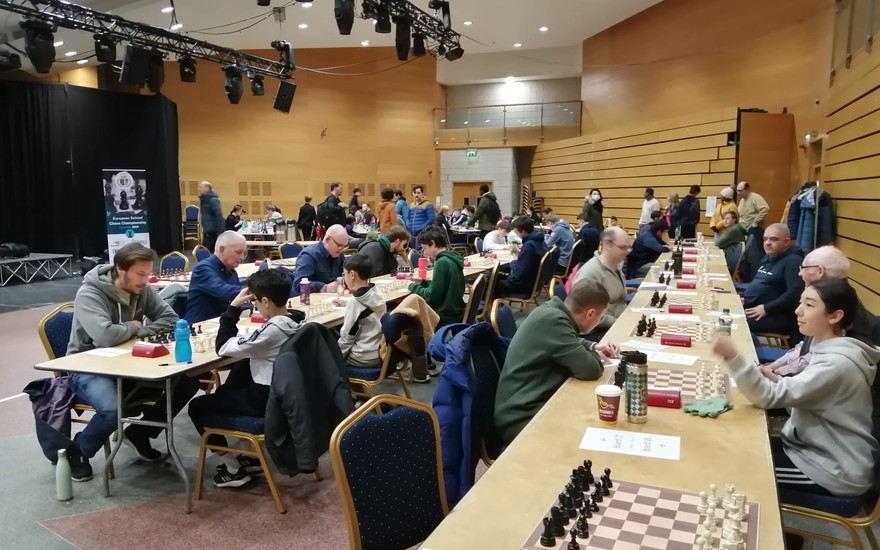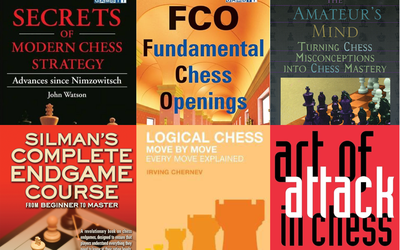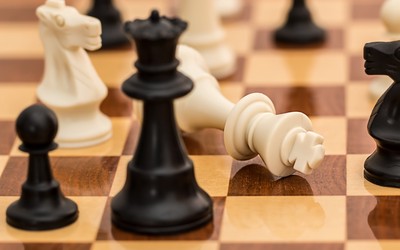
This tournament was a trip down memory lane
Returning to my old college for the first time in 10 yearsWhen I finished school and moved away from home for the first time, it was to study in UCD. I was a simple lad from the West of Ireland, out in the Big Smoke (Dublin). So when I returned to UCD ten years after I graduated, for its first ever chess congress, I was also taking a trip down memory lane.
UCD has changed a lot since I was a student. Back then, most of the buildings were ugly brutalist concrete blocks, whereas now only about half of them are. The other half are modern glass buildings that make the place look a lot less grey and dull. There's new cafes, a restaurant and even a cinema! It was surprisingly nostalgic to wander around the ugly Arts block where I had so many lectures, underneath the library where we would hang out and even past the dirty lake with the foul-tempered swans.
I entered the 1300-1900 Majors section, which is the highest minimum requirement for a section that I've entered. I only just made the cutoff based on my ICU rating but I was around the middle of the pack based on my FIDE rating.
Well, that was embarrassing
Disaster struck twice for me on the very first game. First of all, when I was on the DART on my way to UCD, the train was halted for a long time because a vehicle had struck a bridge, so the train couldn't cross it. This put me in a panic as I had to rush and take two buses and run the rest of the way, worrying that I might be so late that my game would be forfeited. I ended up arriving 45 minutes late, but to my luck, my opponent hadn't arrived yet so the clocks hadn't been started.
By coincidence, I was once again playing the same opponent that I had just played in the last round of the City of Dublin. He's beaten me twice before, so I decided to play it safe and just go for a standard Italian. I started pushing pawns and felt I was gaining control over the centre, but it remained to be seen in which direction he would castle. I was getting ready to play d4 and open things up, when he sacrificed his Bishop on h3.
I looked at it and the position seemed fine. He could bring his Queen, but once I retreated my Bishop to g3, he had no way of breaking through. I was confident the sacrifice didn't work - and I was completely wrong. Like a fool, I missed that his Bishop pinned my f2 pawn, so he could take my Bishop and leave my King wide open. Mate followed shortly afterward.
Honestly, the blunder was so embarrassing, I'd like to move on and forget about this game.
I have him on the run - or do I?
My next game was against the strongest opponent I would face in the tournament, so I again opted for a standard Italian. On move 11, I saw I had the potential for the centre fork trick (except with a Rook instead of a Bishop). I wasn't sure how much better my position would be (I don't gain any material), but the engine always recommends it and I thought it would be a good way to throw my opponent off balance.
It worked and and I decided to push my advantage and take on h3 with my Bishop, exploiting the overloaded pawn. At this point, I had my opponent on the run and felt confident despite the 300-point difference in our ratings. I kept pushing and despite not finding a knock-out blow, I did win an exchange. On move 22, my opponent offered a trade of Queens.
On the one hand, I was ahead in material and this would reduce my chance of losing (a draw would be a good result for me). On the other hand, I was only up a pawn and his King was vulnerable, trading off could be throwing away my advantage. If I could lift a Rook onto the g-file I could have a devastating attack, so I decided to not take the pressure off.
My chances seemed good, as my Rooks could attack down the centre of the d-file or on the kingside. Unfortunately, I was so caught up in my plans that I missed my opponent could fork me and win an exchange. This took away my attacking chances and from then White's Queen danced around me forcing slowly bleeding me of my pawns. I was slowly torn to pieces and lost the game.
During the game, a phone started ringing beside me. At first I thought it might be my opponent's, but it turned out to be the man beside him, who had to immediately forfeit his game.
I love it when a tactic pays off
Funnily enough, I had played this opponent before at the CUS Congress two months earlier. In that game, they outrated me by 200 points and I had a fantastic tournament, so I was happy to play for a draw. In this game the rating gap was narrower and my score was still 0, so I was playing for a win.
I opened this game with the Ponziani and to my surprise my opponent took e4 with the Knight (people almost always take the d4 pawn). When the dust settled, I had two pawns in the centre and the Bishop pair while my opponent had two sets doubled pawns.
While trying to undouble their pawns and fight for the centre, my opponent left some weaknesses which I pressured on move 18. I won a pawn and traded Queens, happy to go into an endgame with good odds of at least not losing and possibly even winning. As the board cleared out, my pawn had an unobstructed path to the finish line.
However, Rook endgames often end in draws, so even though I was up a pawn, the engine says the position is even. Although my pawn was one square from promotion, if my Rook ever moved, I'd lose it.
That is until I spotted a devastating tactic.
When my opponent brought their King closer, I brought my Rook behind it. Now the pawn was undefended, but if he took it, I would give check next turn and win the Rook. But even better, if he didn't take the pawn, it would promote and he'd still lose the Rook. He was lost either way, so my opponent resigned.
1, 2, 3, 4 White declares a pawn war!
This game had a surprising start when my opponent immediately began a pawn storm. Of the first 9 moves, 8 were pawn moves. After the game my opponent, said they read this blog and used it to predict how I would play. If any future opponents of mine are reading this, please show your appreciation for my blog by losing to me :)
The game reminded me of a game in the Killane Shield which I won when my opponent over-extended their pawns and allowed me to counter-attack. Although my opponent had far more space than me, I was confident that once I developed, I would be able to punish them for leaving their King vulnerable. By move 20, I had weathered the initial storm but my defences had been blown up.
On move 21, I had a clever tactic that won a pawn (although the engine calls it a terrible blunder that loses a piece). If I had focused on playing defence, the position is even, but I felt attack was the best defence. Given one extra turn, I would have been winning, but my opponent wasn't so kind. They were able to squeeze past my defences and get mate.
Stay calm and stick to the plan
As I headed into the last game with a score of 1/4, I was desperate for a win. My opponent surprised me on move 5 by playing a move that seemed to hang a pawn after a Queen trade. Perhaps it was some gambit I hadn't seen before, but I decided to play into it and see what would happen.
Sure enough by move 10, my opponent had strong development while most of my pieces were still on the back rank. I managed to fight off the main risks of a fork, but I couldn't keep my pawn advantage. Worse, I had an isolated pawn in the middle of the board that was looking very vulnerable.
But instead of immediately attacking the pawn, my opponent gave me a turn to strengthen my defence and even better, allowed me to win a pawn on f7. Now the table had turned, my pawn had gone from a weakness to a strength as there was a clear path for it to promotion. I could even push it immediately on move 23 as if Black took, a tactic would allow me to win the exchange.
My opponent did try to blockade the pawn, but I stayed calm and just brought another Rook to support the advance. To be honest, I'm very pleased with how I played in this game. It's the one game where it felt like I had a strategy and stuck to it, gradually maneuvering my pieces into better positions. I didn't get hasty and push the pawn too soon, instead I waited for just the right moment. Eventually my pawn reached the 7th rank and my opponent resigned.
Fact or FIDE?
On the bus to the tournament, I was talking to another chess player about the plans to give everyone with a FIDE rating a boost at the start of the year. This is because there seems to be a lot of players who are far strong than their FIDE rating suggests. This would raise my rating from 1500 to 1700, which seems too high if I am honest.
If FIDE ratings are too low, then ICU has an even more extreme case of under-rated players, because (as in other tournaments), most players had FIDE ratings 200 points higher than their ICU rating. I'm no statistician, but I feel more like a 1300 than a 1700.
| Round | ICU | FIDE |
| 1 | 1575 | 1687 |
| 2 | 1624 | 1765 |
| 3 | 1383 | 1705 |
| 4 | 1221 | 1367 |
| 5 | 1188 | 1452 |
Conclusion
I finished the tournament with a performance of 1339, increasing my rating by 3 points to 1321. I also gained 3 FIDE points, bringing my rating to 1506. As has happened in previous tournaments, my defeats were mainly to very strong teenagers who are more than likely significantly underrated. Objectively, it wasn't a bad performance, I didn't lose points and I can't expect to make massive rating gains at every tournament. I started this year with a rating of 906, so I should be pleased with how far I've come.
But, honestly I felt disappointed. I didn't feel like I played well in most of my games and my opponents frequently had the initiative. Round 1 was an embarrassment and Round 5 was the only game I feel I played skillfully. It's true I have made massive progress, but I don't feel that I've reached my peak yet.
This tournament has been a major motivator for me. Since then I have purchased several chess books and have been steadily working my way through them. I set myself the target of practicing chess a little every day, usually a mix of studying a book and then playing a rapid game. So far it seems to be working well and 30 minutes every day seems better than just 2 hours on the weekend.
As for the blog, this will probably be the last tournament review I do. They take a lot of time to write and I probably shouldn't be telling my future opponents my exact thought process. Honestly, I only planned to write 1-2 reviews, I kept going only after I saw how many people were reading them. I will keep blogging but on other topics aside from my games (such as book reviews and chess club discussions).
More blog posts by TeoKajLibroj

Irish Chess Union gives massive rating boost to Irish chess players
How I gained 400 points without playing a game
6 chess books I tried to read
And which ones I would recommend
Has the chess boom reached OTB tournaments?
Have Irish tournaments experienced the chess boom?
